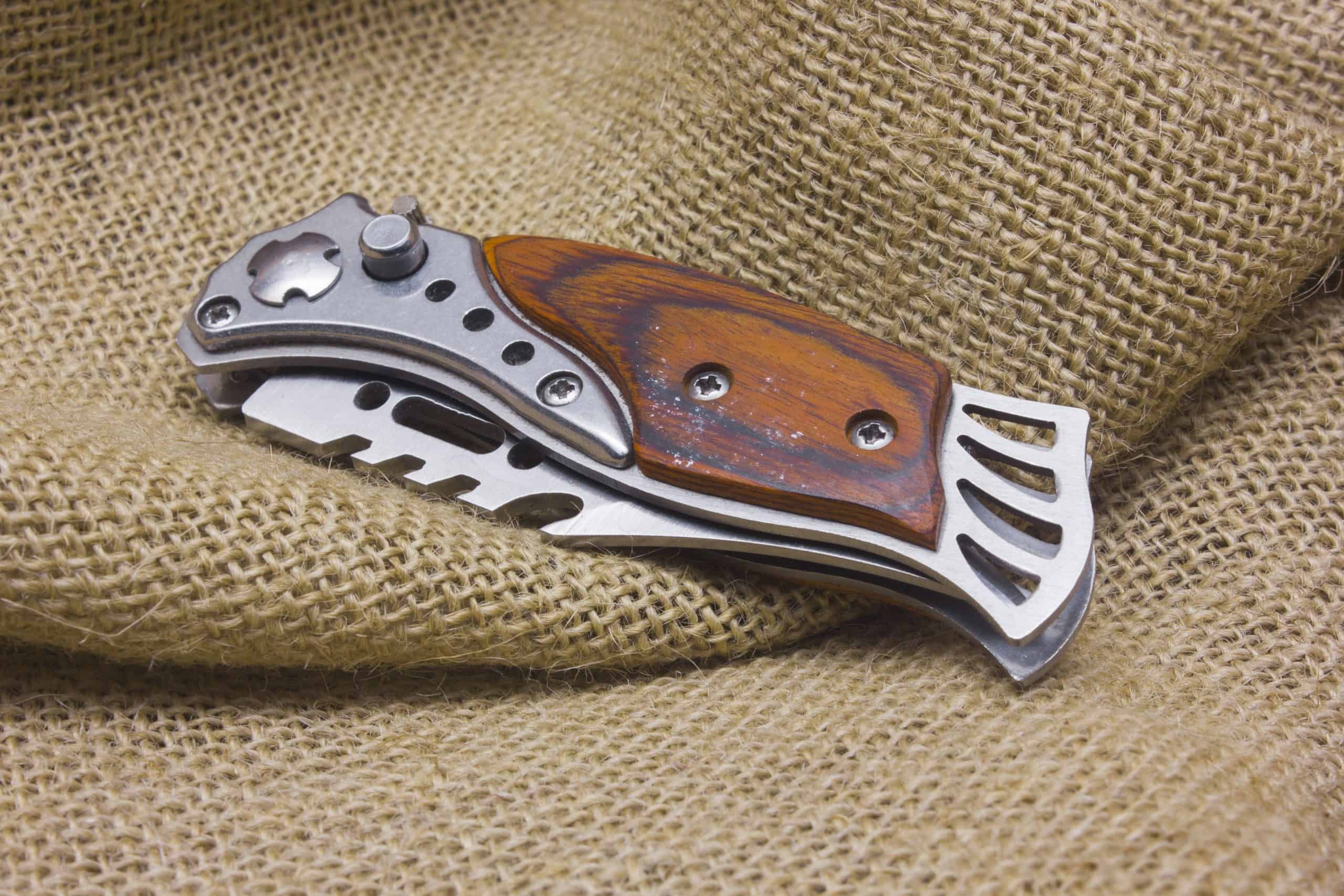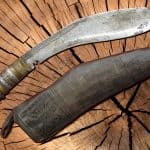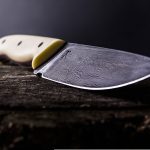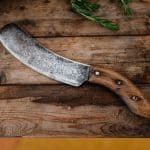
Introduction
Hone oil is a type of oil that is used mainly for knife sharpening. It has a number of properties that make it an ideal lubricant for knife blades. The most common properties of hone oil are its low viscosity, high lubricity, and lack of corrosive elements or fumes. This type of oil allows for quick gliding action when honing or sharpening your knives without damaging the steel in any way.
Another important aspect to consider when using hone oil is proper application; it should be applied as often as necessary between honing strokes to ensure maximum protection for the blades. For example, when using a bench stone, 3–4 drops of hone oil should be applied before every 10–15 strokes that are taken with the stone. It can also help reduce the amount of wear and tear on more expensive ceramic stones if it’s used properly.
Hone oil helps reduce friction while sharpening knives which creates much sharper blades than would otherwise be achieved by honing without it. Additionally, it leaves behind a protective barrier on the blade which helps protect against staining and corrosion. All in all, hone oil is an essential tool for sharpening knives both professionally and at home due to its versatility and utility when used correctly.
How Hone Oil Compares to Other Knife Sharpening Techniques
Honing oil is one of the most popular methods used to sharpen knives. It is an inexpensive, quick and easy way to keep your knife blades in good shape. It requires few supplies or skills and can be used on almost any type of knife blade. Hone oil works by lubricating a sharpening stone which will help reduce friction when the dulled edge of the blade is moved against it. This helps develop burr-free edges on both sides of the blade with very little effort.
Compared to more traditional whetstone sharpening methods, honing oil makes the process much simpler and quicker by reducing the amount of time spent stropping the blade to remove any burrs after using a stone. Additionally, using honing oil does not require a lot of skill and produces smoother results when grinding away at the blade with a whetstone. Furthermore, honing oil has relatively low environmental impact as it does not produce any very abrasive particles that need to be taken care of after use unlike some other sharpening techniques such as diamond plates or belt grinders. Ultimately, honing oil is a great choice for those who don’t have too much time but still want to maintain their knives properly.
Exploring the Benefits of Using Hone Oil for Knife Maintenance
Honing oil is a specialized lubricant used to sharpen knives. It provides superior lubrication and protection against corrosion during sharpening, helping the knife edge stay straighter and sharper between visits to the sharpener. The oil is made from a variety of ingredients including vegetable, mineral, or synthetic oils that provide proper lubrication for blades that are made of different metals such as carbon steel, stainless steel, and Damascus steel.
The biggest benefit to honing with oil is that it creates a protective barrier between the blade and stone. This helps protect the blade from potential damage due to friction caused by sharpening. Hone oil also makes it easier for the knife user to track their progress while on a sharpening stone, as it decreases resistance when running the blade across the stone’s surface.
For best results with Knife maintenance using hone oil, clean and dry your blade before applying an even layer of the liquid along its length. Some brands contain compounds which help speed up sharpness when used regularly in combination with stropping (polishing) agents like polishing stones or rods. Allowing for greater control when honing your knives, honing oils can reduce wear on the edges in comparison to other traditional methods of sharpening, like sandpaper or electric sharpeners. In addition, honing oil lets you sharpen with precision: Different fluids are designed for specific types of blades or specific types of edges allowing you to customize your sharpening experience. Finally, many brands will also provide corrosion resistance which helps optimum performance over time.
Different Types and Qualities of Hone Oil Explained
Honing oil is a key component of proper knife sharpening techniques. It helps to lubricate the surface of the blade that is being sharpened, making it easier to move along the stone or steel for an even sharpening. Honing oil comes in different types, ranging from light synthetic blends to heavier natural-based oils such as clarinet which provide superior protection against corrosion and rust. Some honing oil producers also opt to use vegetable oil as a base product, producing a non-toxic oil that works well with all types of knives and stones.
The quality of honing oils can vary depending on its base ingredients and intended purpose. Mineral-based oils usually create a thin coating on the blade’s surface, while products based on animal fats will create a thicker layer that may need more frequent cleaning. Synthetic-blend oils usually provide better protection than natural-based products due to their long lasting formula and lack of contaminants like waxes, which can clog stone pores reducing their ability to effectively sharpen blades. Finally, there are tungsten-based honing oil products available for high performance applications such as woodworking or leathercrafting projects requiring more cutting speed and sharper edges produced with fewer strokes.
Regardless of which type or quality you choose, the importance of using honing oils for sharpening is not something to be taken lightly – without them your blades will quickly dull due to added abrasive forces during grinding and polishing on hard surfaces such as diamond or ceramic rods used for certain sharpening methods.
Selecting the Right Type of Hone Oil and How to Utilize It
When it comes to knife sharpening, honing oil is a necessary detail when utilizing a sharpening stone. Without honing oil, using a honing stone would be a very arduous task. Honing oil acts as a lubricant which helps you to keep the blade sliding along the surface of the stone while also aiding in reducing any grinding and friction between the two objects resulting in razor-sharp edges.
Honing oils will usually come with additional additives that are designed to suspend large particles of metal grindings that were extracted from the blade while it was being sharpened so these particles do not clog up your stone’s pores. This further contributes towards an effortless glide during you honing process. The type of honing oil most recommended for use on almost any stone is mineral oil because it does not evaporate as easily compared to other available types such as vegetable oils or even WD40.
Applying honing oil should always be done before beginning to sharpen your knife and can be done by simply pouring some on top of your sharpening stones, allowing it to remain there until you have completed your sharpening session after which you simply wipe away any remaining residues with an old towel or cloth piece. Care must also be taken when disposing of the used oil by ensuring it is poured into sealable containers and not directly onto the environment in order to avoid any potential contamination
Practical Uses for Hone Oil
Hone oil is a type of mineral oil specially designed to help in the process of sharpening knives. This special oil helps by providing lubrication while you sharpen, which prevents your stones from clogging and allows them to do their job more effectively. It also protects the blade itself from rusting or being permanently damaged due to heat generated during aggressive sharpening.
Hone oil is most often used when using a whetstone for manual knife-sharpening, but it may also be suitable for use with other forms of sharpening tools such as pull-through sharpeners and electric knife sharpeners. The types of blades that benefit most from hone oil are those with flat edges such as kitchen knives, pocket knives and outdoor hunting knives. By reducing friction, hone oil helps create a razor edge that will slice through almost anything without leaving jagged marks on the surface you’re cutting or slicing.
Tips for Maximizing the Effects of Hone Oil and Properly Storing It
When using hone oil for knife sharpening, it is important to store the oil correctly when not in use. To do this, place the hone oil and the bottle in a cool and dark place to ensure maximum shelf life. If hone oil has been exposed to open air for too long, it will start to lose its viscosity and effectiveness as an honing lubricant.
Before applying hone oil onto knives, make sure they are adequately cleaned. This preparation helps prevent any remaining oils or other residue from interfering with the effectiveness of the hone oil. Then when sharpening knives, apply a generous amount of oil on both sides of the blade and use moderate strokes back and forth across the stone surface. It is recommended that fresh honing oil be used after every 10-15 minutes of sharpening to ensure optimal results and ultimately extend the longevity of your knives. To maximize the effects of hone oils over time, try formulating an appropriate mixture by combining various types or viscosities of it depending on what your knives require.
Final Thoughts
Hone oil is an essential item for every knife owner because of its multiple benefits. Not only does it protect a blade from oxidation and rust but also helps remove debris and other materials from the edge when sharpening occurs. By keeping your blade in peak condition, you ensure that it can perform at optimal levels to maintain an edge during usage. Furthermore, using honing oil on a regular basis will extend the life of your blades, save you money in the long run due to fewer purchases of replacement knives, and help keep your kitchen safe by reducing risk of cuts. Regardless of whether you’re a professional chef or a casual home cook, hone oil should be a regular part of your knife maintenance regimen as it has multiple beneficial properties. So don’t wait any longer, get some honing oil today and keep your blades in pristine condition!
















